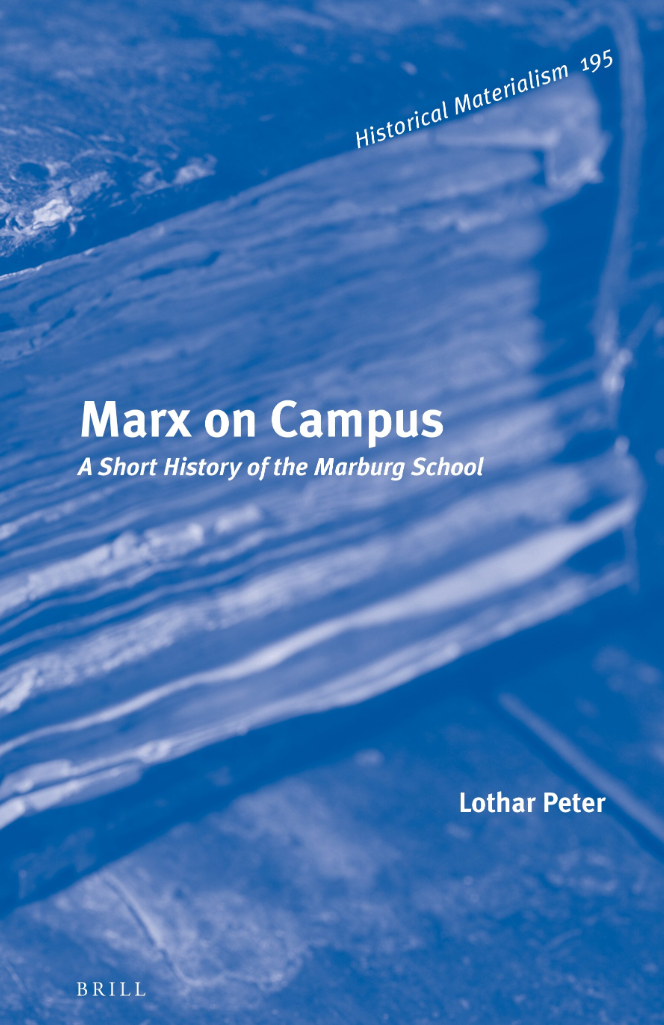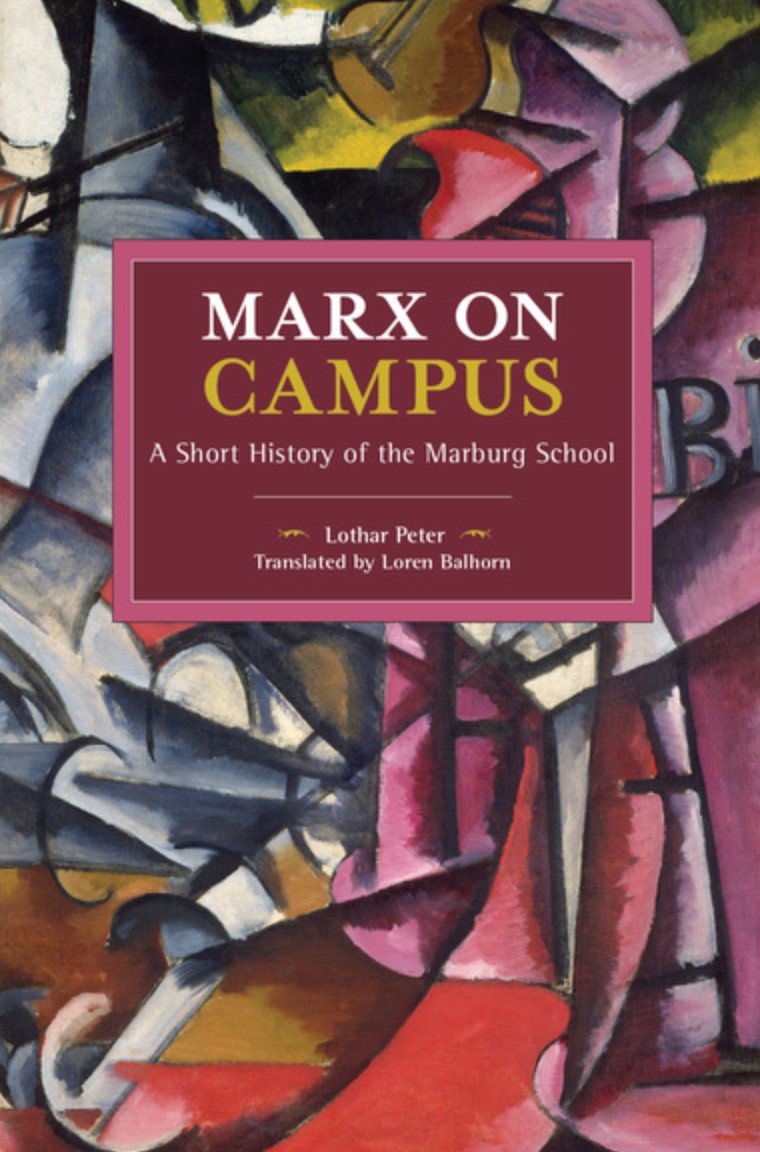Lothar Peter
Alongside the ‘critical theory’ of the Frankfurt School, West Germany was also home to another influential Marxist current known as the Marburg School. In this volume, Marburg disciple Lothar Peter traces the school’s history and situates it in the political discourse and developments of its time. The renowned political scientist Wolfgang Abendroth plays a large role, but unlike most histories of the Marburg School Peter also takes the sociologists Werner Hofmann and Heinz Maus into account as well as their many students and successors. They were united by the conviction that teaching and scholarship must necessarily be tied to the practical goal of transforming society – an approach that met with considerable opposition in the harshly anti-Communist atmosphere of the period.
This book was first published in 2014 as Marx an die Uni. Die “Marburger Schule” – Geschichte, Probleme, Akteure by PapyRossa Verlag, Cologne, ISBN 978-38-94-38546-0. With a new Introduction by Ingar Solty.
Biographical Note
Readership
All interested in German post-war intellectual history, political science, sociology, critical theory, social science, philosophy, as well as the Communist, socialist, and labour movements.
Table of Contents
Preface
Abbreviations
Introduction
Ingar Solty
1 Abendroth School or Marburg School?
1 What Constitutes a School of Thought?
2 Why the ‘Marburg School’?
2 First Phase: Gradual Formation, 1950 to the Mid-1960s
1 Social and Political Context
2 Wolfgang Abendroth (1906–85)
3 Students, Doctoral Candidates, Staff
3 Second Phase: Emergence of an ‘Epistemic Community’, Mid-1960s to Early 1970s
1 Social and Political Context
2 Werner Hofmann (1922–69)
3 Heinz Maus (1911–78)
4 Abendroth, Hofmann, and Maus’s Understanding of Marx and Marxism
5 The Marburg and Frankfurt Schools: ‘Social Critique’ or ‘Artistic Critique’?
6 Dominance of the Marxist Paradigm
4 Third Phase: Continuity and New Challenges. Abendroth’s Retirement to the Early 1980s
1 Social and Political Context
2 The Political Sociology of Worker Consciousness and the Trade Unions (Frank Deppe)
3 The History of German Social Democracy (Georg Fülberth and Jürgen Harrer)
4 Studying Fascism (Reinhard Kühnl)
5 The Political Sociology of Latin America (Dieter Boris)
6 External Pressure, Administrative Interference, Difficult Encounters
7 A Controversial History of the Trade Unions
8 Theoretical Conflict: The Identity of Marxism
5 The Marburg School since the 1980s
1 A Premature Farewell
2 A Contribution to Constitutional Law (Peter Römer)
3 Marburg in the Historikerstreit (Reinhard Kühnl)
4 Activities and Interactions in the Academic Sphere
6 Fourth Phase: From the ‘Epochal Rupture’ of 1989–90 to the Early 2000s
1 Social and Political Context
2 Confronting the ‘Epochal Rupture’ (Georg Fülberth)
3 Reacting to a Changed Situation
4 Excursus: A Conversation between Ulrich Beck and Frank Deppe on the State of Political Opposition in Germany
7 Scholarly Focuses since the 1990s
1 Research Activity and a New Conflict
2 Social Movements in Latin America (Dieter Boris)
3 Capitalism and Kapitalistik (Georg Fülberth)
4 Political Thought from the Late Nineteenth to the Early Twenty-First Century (Frank Deppe)
8 Conclusion
Bibliography
Index


